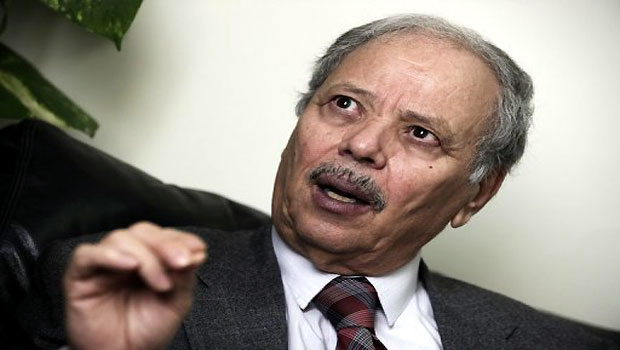Cairo, Asharq Al-Awsat—Leaders attending the upcoming Arab League summit must seek “joint Arab confrontation” of terrorism across the Middle East, the deputy secretary-general of the Arab League Ahmed Bin Helli said, while describing the US-led coalition against Islamic State of Iraq and Syria (ISIS) as being “largely ineffective.”
In comments to Asharq Al-Awsat, Helli said that the forthcoming Arab League summit, set to be held in the Egyptian Red Sea resort of Sharm El-Sheikh between 28 and 29 March, will seek to find solutions to the ongoing state of “decline and deterioration” across the Arab world. “We need to put out the fires that are raging in a number of Arab cities,” he said.
Bin Helli confirmed that the Arab League summit, which is expected to be attended by a number of Arab heads of state, will discuss the deteriorating situations in Syria, Yemen, Libya and Somalia. “We will seek to emerge with crucial decisions to resolve these issues,” Bin Helli said.
“We are seeing terrorism spread in an unprecedented manner, in addition to the collapse of our institutions and the destruction of our history. Therefore, we must see a joint Arab confrontation of this, particularly as no Arab state can say that it is beyond the reach of the threat of terrorism. It is in our mutual interest to jointly confront this threat,” he told Asharq Al-Awsat.
Middle Eastern leaders will now look to bolster joint efforts to deal with the unfolding crises in the region independent of international support, Bin Helli added.
There have been growing calls for stronger Arab military and security efforts to deal with the deteriorating situation in a number of regional states, not least of which is the threat posed by ISIS and the Houthis in Yemen.
The Arab League deputy chief described the US-led anti-ISIS coalition as being “largely ineffective” from an Arab point of view, adding that “the time has come for the region to recover from what it has suffered and to regain its momentum and strength via Arab solidarity.”
Bin Helli described Arab national security as the “fundamental issue” that will be discussed at the Arab League summit. “The Arab League, for the first time, feels that we need to re-read and review our principles in terms of Arab national security, and that is our priority,” he said, calling for “joint Arab action.”
“This summit is an important opportunity to reactivate joint Arab defense projects,” he added.
Another major issue that is set to be discussed at the Sharm El-Sheikh summit is the outcome of the Israeli elections, with most political observers believing that Prime Minister Benjamin Netanyahu will be able to form another government and cling on to power. This comes as bad news for the Palestinians. Netanyahu controversially ruled out the establishment of a Palestinian state as long as he is prime minister in the closing stages of his party’s election campaign earlier this week.
“All signs indicate that the Netanyahu government will not change, and will not allow for the establishment of a Palestinian state, as Netanyahu himself said. Therefore during this summit we must discuss the Arab peace strategy and the Arab Initiative, and not rely on the Middle East Quartet [US, UK, Russia and EU] and the international community. We tried this before and it did not achieve anything,” Bin Helli told Asharq Al-Awsat.

